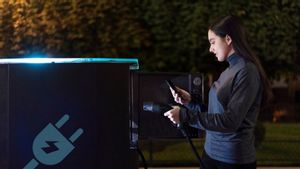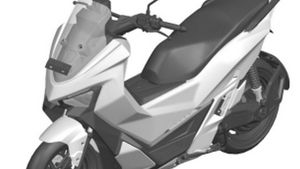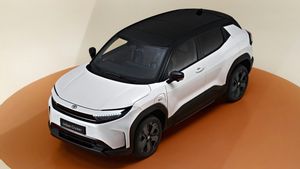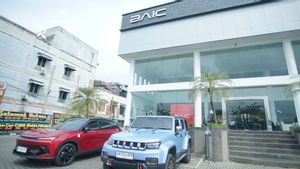JAKARTA Hyundai Motor Company, an automotive giant from South Korea, and its partner BAIC Motor, announced a large investment of US$1.1 billion or around Rp17.6 trillion. This step was carried out through the establishment of a joint venture to produce and sell Hyundai cars in the world's largest automotive market, China.
Launching from Reuters, Friday, December 13, this investment demonstrates Hyundai's commitment despite the tough challenges of local competitors, especially BYD, which since 2018 dominates China's electric car market. With a divided investment between Hyundai and BAIC, the two companies hope to increase competitiveness in the bamboo curtain country which is now the fierce battlefield of the automotive industry. New strategy: Focus on Consumer and Global Market Needs
BAIC revealed that this joint venture is not only aimed at strengthening its position in the domestic market, but also has the potential to make China a production base for global exports.
"We plan to introduce more products that suit local consumer needs," said the BAIC representative.
However, Hyundai's challenges cannot be taken lightly. Based on data from the China Association of Automobile Manufacturers (CAAM), Hyundai only managed to sell 136,460 units of vehicles during the first nine months of this year. Most of these sales are still dominated by internal combustion engines or ICE, with 34,179 units exported to foreign markets.
SEE ALSO:
Overall, Hyundai sales in China show a downward trend. In 2022, Hyundai only managed to sell 249,000 units, far from the peak of their 2016 sales which reached more than one million units.
This decline also had an impact on Beijing-Hyundai operations, a previous joint venture between Hyundai and BAIC. To date, two of China's four Hyundai factories have been closed due to weakening demand.
Hyundai's biggest challenge in China is the massive transition to electric vehicles. Recent data show pure electric vehicles (EVs) and plug-in hybrids (PHEVs) now control more than 50% of China's automotive market. Unfortunately, Hyundai has yet to present an EV or PHEV model in the market, and still relies on selling ICE cars.
Through this new collaboration, Hyundai and BAIC are expected to change the direction of their strategy and present vehicles relevant to modern market needs. If Hyundai manages to take advantage of this momentum, this joint venture could be a stepping stone to compete again in China's increasingly competitive automotive market.
The English, Chinese, Japanese, Arabic, and French versions are automatically generated by the AI. So there may still be inaccuracies in translating, please always see Indonesian as our main language. (system supported by DigitalSiber.id)
















